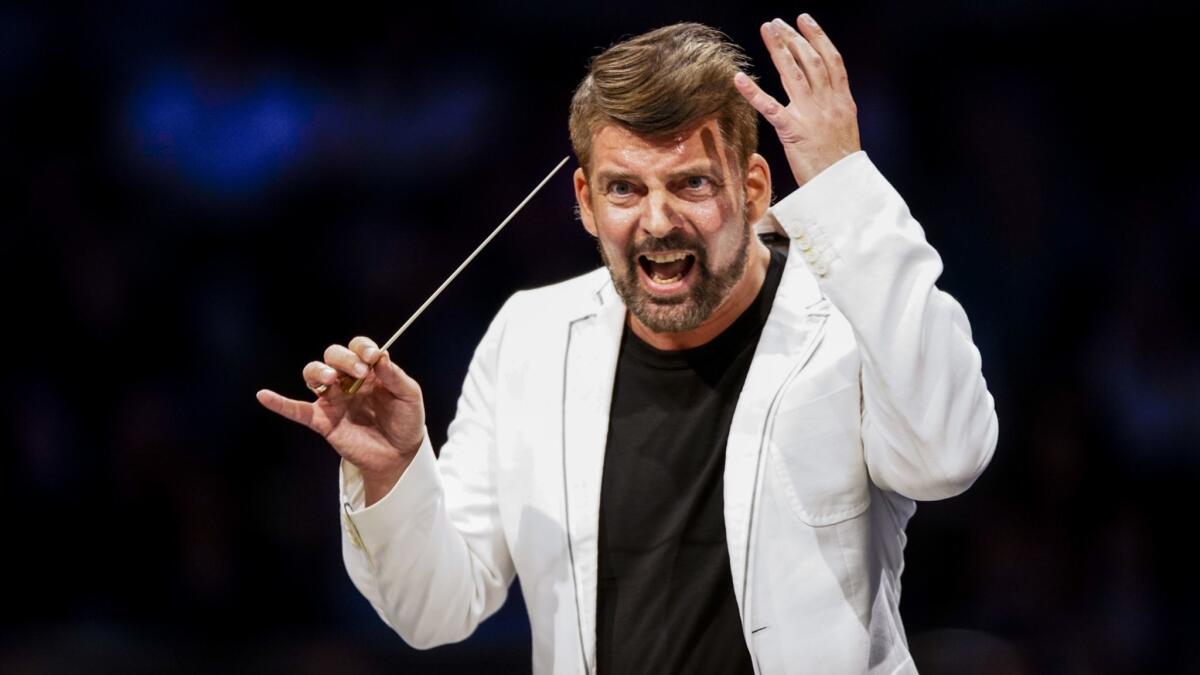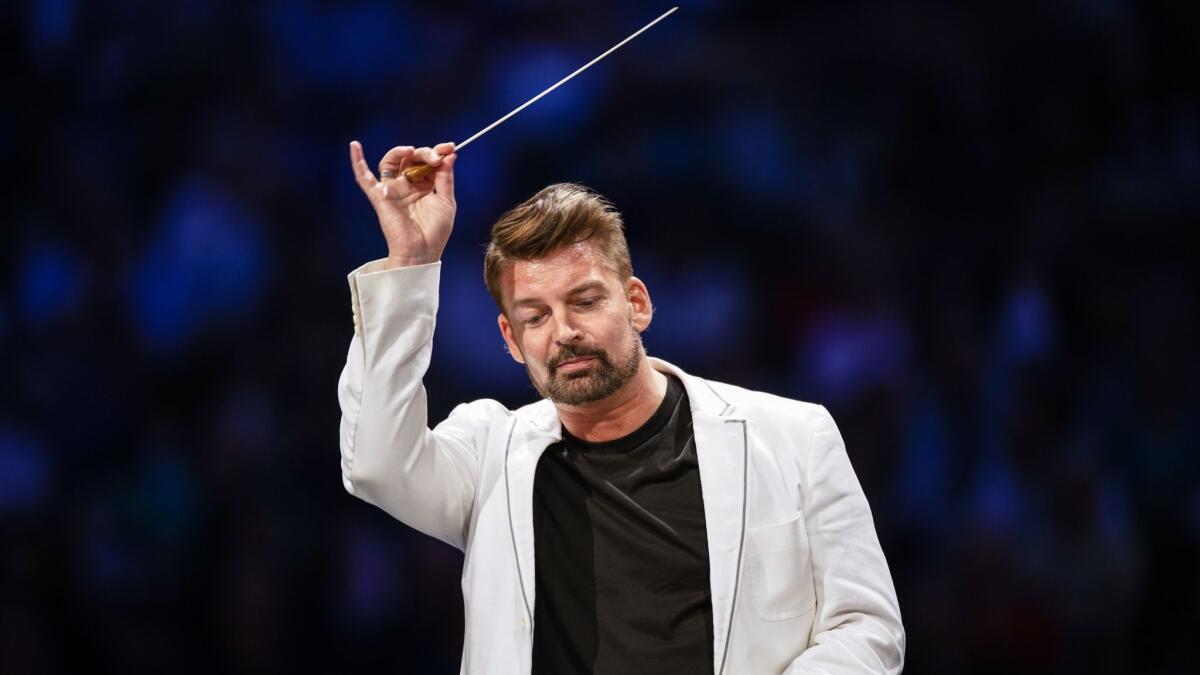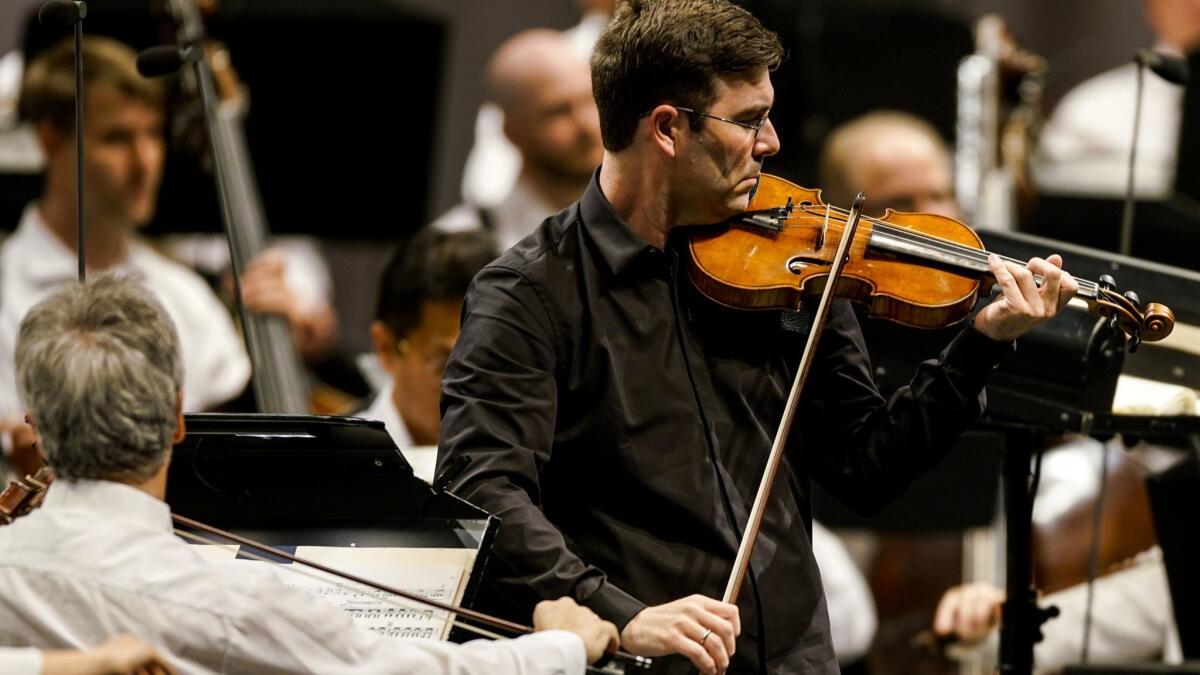Review: In his Hollywood Bowl debut, Matthias Pintscher lends some snap to Stravinsky

- Share via
Composer and conductor Matthias Pintscher is already a name in new music circles.
He is the music director of Paris’ Ensemble InterContemporain, which puts him directly in the line that started with founder Pierre Boulez. His latest album with the group, “New York,” is a two-CD roundup of works by forward-thinking New York residents past and present, opening with a superb rendition of Varèse’s “Intégrales.” And in 2020 he will be the music director of the Ojai Music Festival, which guarantees him a free hand for adventure.
With all this in mind, one place you might not expect to see Pintscher would be in the vast, populist realm of Hollywood Bowl. But there he was Tuesday night, weaving to and fro on the big screens, leading the Los Angeles Philharmonic in a program that celebrated a forward-thinking past resident in the hills not far from the Bowl.

If you guessed Stravinsky, bull’s-eye! And it wasn’t the usual ballets, either. Rather, Pintscher concentrated his attention on two irresistible pieces from Stravinsky’s long neoclassical period that we hardly ever hear outdoors.
One was the suite from “Pulcinella,” the bellwether of neoclassical Stravinsky, in which he passionately and zestfully reworked some 18th-century pieces that he thought were by Pergolesi (some were, but most weren’t). The other was the Violin Concerto in D, or rather an anti-violin concerto — spiky, spartan, unconcerned with flashy virtuosity for its own sake, with each of the four movements opening with a deliciously acidic, spread-out chord for the soloist.
Stravinsky is embedded in the DNA of this orchestra. In the 1960s, he recorded both of these pieces with pickup orchestras containing members of the L.A. Phil at the American Legion Hall, within walking distance of the Bowl. Today’s L.A. Phil went easily back and forth between the sharp, rhythmic snap that the composer liked and a lilting lyrical element in a very satisfying and bracing “Pulcinella.”

First associate concertmaster Nathan Cole had the Violin Concerto down cold with the right resilient, incisive approach, and the occasional lack of sync between the soloist and orchestra in rhythmically tricky outer movements might be blamed on the Bowl’s notoriously short rehearsal time. Fortunately, everything came together midway into the finale en route to a sizzling coda. Cole topped it off with a poised solo Siciliana from J.S. Bach’s Sonata No. 1 in G minor.
Of course, you wouldn’t have known that Stravinsky was the dominant item on the menu if you had just glanced at the short-form headline for the concert, “Elgar’s Enigma Variations.” Nothing wrong with Elgar being there. It’s a great piece, and Pintscher procured a fine performance from the L.A. Phil, with plenty of fire in the agitated episodes and a suitably grand finale. But I wonder what made the marketeers think that the name Elgar would be a bigger draw than that of Stravinsky in his hometown?
See all of our latest arts news and reviews at latimes.com/arts.
More to Read
The biggest entertainment stories
Get our big stories about Hollywood, film, television, music, arts, culture and more right in your inbox as soon as they publish.
You may occasionally receive promotional content from the Los Angeles Times.










